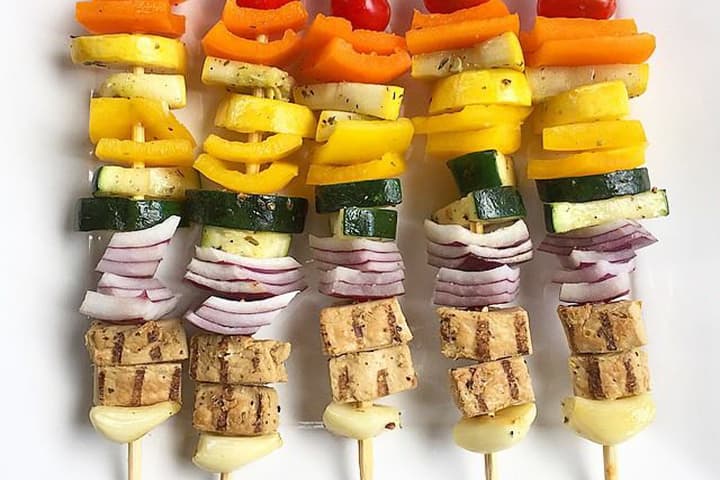Advertisement
Fake Meat Is Very Real
ResumeThe big push for fake meat. Bill Gates is in on it. To cut back on livestock production. To, maybe, save the planet.

Whatever you personally think of it, humans love meat. We brought mastodons down to get it. And vegetarians aside, we eat enormous quantities of it today. But here’s the problem: environmentally, meat is a killer. Industrial-scale meat production for a crowded planet guzzles water and land and gives off more greenhouse gases than transportation – cars and trucks and the rest. Yet we love it. There’s a big push on for fake meat. Vegetable-based. That would bring the protein, satisfy the craving, and spare the planet. This hour On Point: fake meat. We’ll taste it and ask how far it goes.
-- Tom Ashbrook
Guests
Rowan Jacobsen, author and journalist. Author of "Apples of Uncommon Character," "Shadows on the Gulf" and "American Terroir." (@rowanjacobsen)
Gidon Eshel, professor of climate physics and environmental policy at Bard College.
Ethan Brown, founder and CEO of Beyond Meat. (@beyondmeat)
From Tom’s Reading List
Outside: The Top-Secret Food That Will Change the Way You Eat — "Livestock, in fact, are horribly inefficient at making meat. Only about 3 percent of the plant matter that goes into a steer winds up as muscle. The rest gets burned for energy, ejected as methane, blown off as excess heat, shot out the back of the beast, or repurposed into non-meat-like things such as blood, bone, and brains. The process buries river systems in manure and requires an absurd amount of land. Roughly three-fifths of all farmland is used to grow beef, although it accounts for just 5 percent of our protein. But we love meat, and with the developing world lining up at the table and sharpening their steak knives, global protein consumption is expected to double by 2050."
Fast Company: Tastier, Healthier, And Animal-Free: Can Ethan Brown Reinvent Meat? — "Imagine that you had to describe meat to someone who's never encountered the stuff. It would be hard to do because meat is, you know, meat. You'd begin with where it comes from—the muscles and flesh of chickens, cows, pigs, etc. You'd offer characteristics (the sunset-pink of a medium-rare steak, the savory flavor, the chewiness, the grill marks when you cook it over fire) and the things you can make from it, such as burgers, nuggets, and cold cuts. If you wanted to describe what meat isn't, the top category on your list would clearly be plants."
Los Angeles Times: Climate scientists have a beef with beef — "Emissions from developed countries, such as the United States, topped out in 1970 and have decreased 23%, according to the study published in Climatic Change. But emissions more than doubled in developing countries, largely the result of domestic consumption, said Ken Caldeira, a Carnegie Institution ecologist and co-author of the study, which estimated production of methane and nitrous oxide by 11 livestock populatons in 237 countries."
This program aired on April 15, 2015.